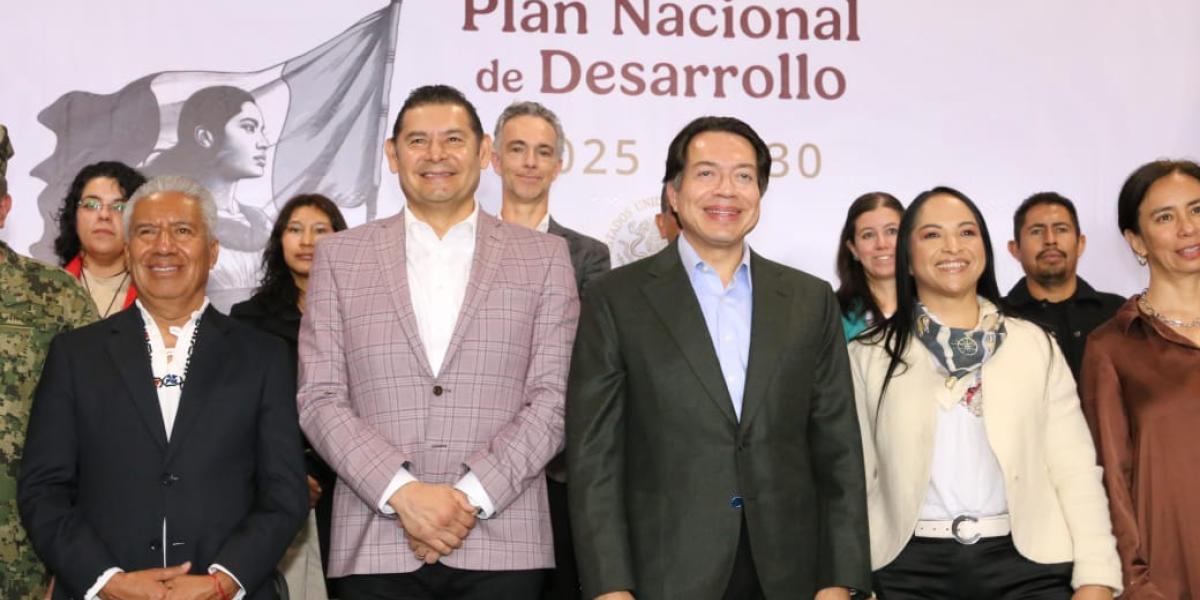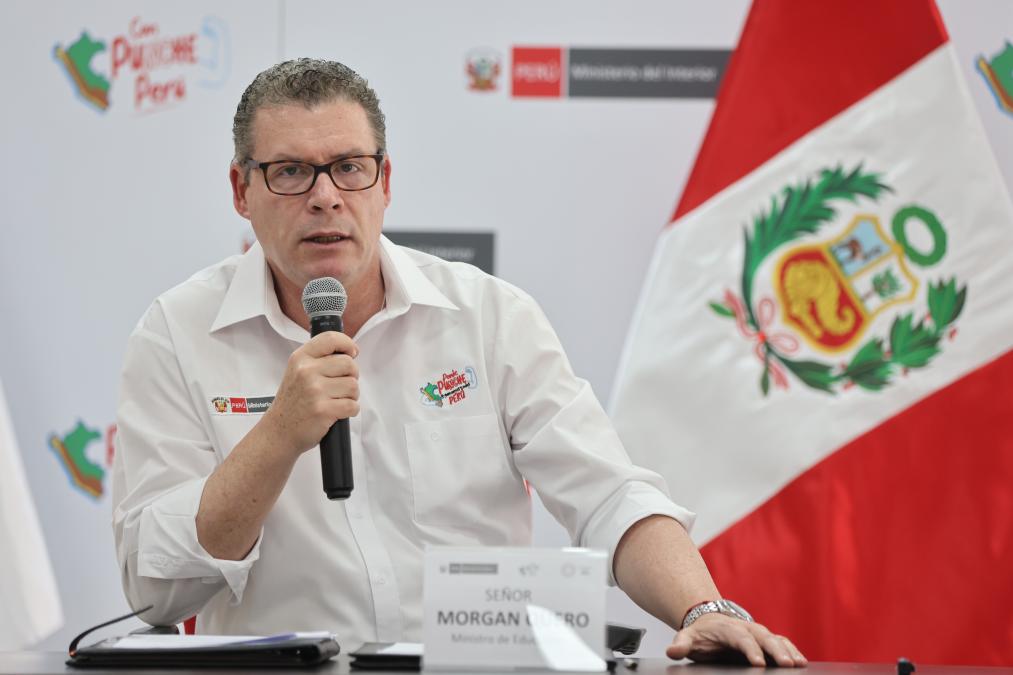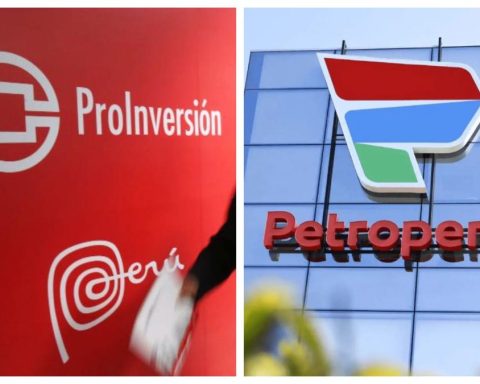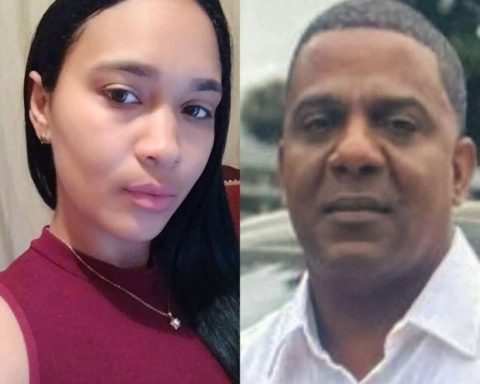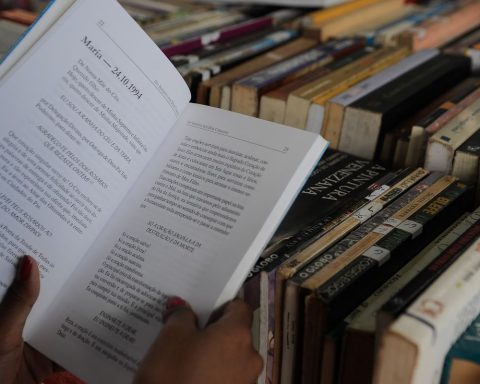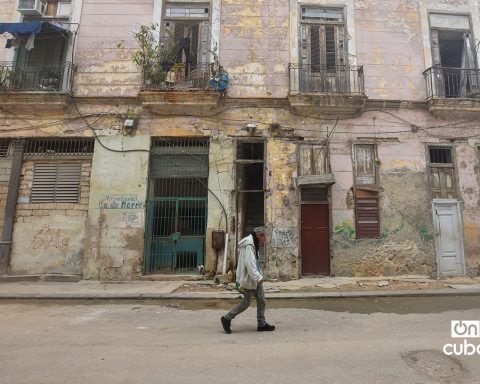• The Secretary of Public Education, Mario Delgado Carrillo, and the governor of Puebla, Alejandro Armenta, inaugurate the Consultation Forum to strengthen the general axis “Moral Economy and Work” and the transversal “Public innovation for national technological development.”
• In the presence of more than 1,300 attendees, the head of the SEP said that with education, technology, innovation and transformation advance.
• The National Development Plan is a guide; It is a compass that establishes the route for the development that Mexicans deserve, says Governor Alejandro Armenta.
The Secretary of Public Education, Mario Delgado Carrillo, and the governor of the state of Puebla, Alejandro Armenta, inaugurated the Consultation Forum for the Formulation of the National Development Plan (PND) 2025-2030, so that citizens can participate in a open and transparent dialogue through its proposals, on the general axis “Moral Economy and Work” and the transversal “Public innovation for national technological development”.
At the facilities of the Ciudad Modelo Convention Center, in the municipality of San José Chiapa, headquarters of the second Consultation Forum run by the Ministry of Public Education (SEP), its owner stated that, through dialogue with the people, The National Development Plan seeks to consolidate us as a cultural and economic power in the face of the challenges of technological advance.
In the presence of more than 1,300 attendees at the forum from the academic, economic, industrial, social and general public sectors, who participated during six work tables, the head of the SEP assured that when a State has honesty as values, then The nation’s participation in the economy changes completely and the population can have an innovative and entrepreneurial country.
He called on the attendees to send a message, through their participation, to the President so that she knows that “the entire educational sector and the productive sector are united and in total support for the Government of the Republic in the face of the challenges that confront us.” “I asked our neighbor to the north.”
He explained that the National Development Plan 2025-2030 will have a deep vision of dialogue and closeness with the people, demonstrating the political will of President Claudia Sheinbaum Pardo, not only to find solutions to the challenges that lie ahead, but also to enhance our capabilities to the maximum, according to the characteristics of each region and the talents of each participant.
This, he commented, because the federal president is clear that science and technological development must have a social responsibility and serve to improve people’s lives.
He added that in 2025 more than 14 million scholarships will be awarded to students in Basic, Higher Secondary and Higher Education, with a social investment of more than 122 billion pesos, and announced that 330 thousand new spaces will be opened in Higher Education.
Finally, the Secretary of Public Education, Mario Delgado Carrillo, invited citizens to participate in the Consultation Forums for the Formulation of the National Development Plan (PND) 2025-2030, sending their proposals online through the site https://planandojuntos.gob.mx/
“Secretary, we want you to take Puebla as the laboratory of the educational project of the Fourth Transformation, we are prepared. Let Puebla be the laboratory to consolidate this link between the educational community and the productive sector for the benefit of the population, that is why we are working,” said the governor of the state of Puebla, Alejandro Armenta.
He expressed that the National Development Plan 2025-2030 will be a guide; It is a compass that establishes the route for development, which Mexicans deserve in the Fourth Transformation. “The state government is also going to present the forums hand in hand, as our president is doing, to align the State Development Plan with the National Plan and the municipalities will do the same.”
He highlighted the importance of holding the consultation forum on educational matters for the construction of the National Development Plan in Ciudad Modelo, since that area will be “the Silicon Valley of Puebla, becoming the Valley of Technology and Sustainability and a technology polygon”, since in that region are the campus of the National Polytechnic Institute, the BUAP and the Training Center in Ciudad Modelo (CERHAN), which strengthen the educational sector in that region of the state.
For this reason, he reported that Puebla stands out for its educational coverage of more than 91% in the preschool, primary and secondary sector. In addition, he reaffirmed his commitment to promoting the University of Sports and the University of Police Sciences.
For his part, the Secretary of Education of Puebla, Manuel Viveros Narciso, highlighted that this forum is a historic opportunity, opening a space in the construction of the second floor of the transformation. “This is a crucial stage to consolidate the nation project led by our president Claudia Sheinbaum Pardo; her vision of a transformative, humanist and scientific republic is a lighthouse that guides our actions in the educational sector.”
He expressed his recognition of the work of the federal government, which has outlined the pillars to strengthen the educational system, under the premise of inclusion, equity, quality and relevance. In this sense, he stated that Puebla joins the commitment that the New Mexican School continues as a priority.
“This model not only focuses on learning, but also on the comprehensive training of girls, boys and young people as critical, committed and supportive citizens. This project is complemented by an unprecedented scholarship system, which ensures that no one is left behind. back and that education is a full right in Puebla under the leadership of Governor Alejandro Armenta,” he said.
The Undersecretary of Higher Secondary Education of the SEP, Tania Rodríguez Mora, said that they are thinking about a development that adds up, that generates prosperity for everyone. That is why it is thought that technological development should bring benefits to people.
He added that technological gaps must be overcome so that Mexicans have a level playing field. He considered that the sum of efforts in academia is important and should motivate young people to join these actions. “It is education that moves the will to build the future we want,” he said.
Thus, the general secretary of section 23 of the National Union of Education Workers (SNTE), José Luis González Morales, representing the general secretary Alfonso Cepeda Salas, stated that the Moral Economy and Public Innovation for National Technological Development , approached from an educational perspective, will allow the labor landscape to be transformed in a way that promotes decent employment, equity and sustainable development.
He commented that a comprehensive education will prepare individuals to face the challenges of the labor market for the benefit of society.
The president of the National Chamber of the Electronic, Telecommunications and Information Technology Industry (CANIETI), Enrique Yamuni Robles, said that previously the organization presented various strategies for the attraction, training and retention of talent, as well as public actions and policies. that are required to achieve an effective digital transformation.
He stated that Mexico needs to invest in research, development and innovation, with emphasis on the public budget allocated to education, as it should be seen as an investment and not as an expense.
As part of the forum, attendees will have the opportunity to participate in the following tables: Table 1 – ““Innovation for national technological development: semiconductors, electromobility and clean energies”; Table 2 – “Dual training for innovation and national development”; Table 3 – “Comprehensive technological training in higher education institutions.”
In addition, they participated in Table 4 – “Regional, national and international linkage for technological development”; Table 5 – “Skills for the future”, and in Table 6 – “Intercultural Training for peace and sustainable development”.
At the inauguration of this second Consultation Forum were: the person in charge of the Undersecretary of Higher Education of the SEP, Carmen Enedina Rodríguez Armenta; the Undersecretary of Industry and Commerce of the Ministry of Economy, Vidal Llerenas Morales; the general director of the National Technology of Mexico (TecNM), Ramón Jiménez López; the head of the Update Unit, Legality and Regulation of the SEP, Euripides Flores; the rector of the University of Valle de México (UVM) Puebla campus, Mónica Porras Hernández; the Institutional Development Manager of the STEM Movement, María Rosa Araiza; the General Secretaries of Sections 23 and 52 of Puebla, José Luis González Morales and Alfredo Gómez Palacios, respectively.
Also participating were the president of the Political Coordination Board of the Congress of the state of Puebla, Laura Artemisa García Chávez; the President of the Education Commission of the Congress of the state of Puebla, María de Los Ángeles Ballesteros García; the director of the Language Academy of the Poblano Institute of Indigenous Peoples (IPPI), Lucero Salas Pérez; federal deputy Juan Antonio González Hernández; the general coordinator of the Economic Welfare Kitchen of the Gulf of Mexico Center, Juan Carlos Natale, the Secretary General of the Organization of American States (OAS), José Manuel Alonso Orozco.
As well as, the President of the National Chamber of Cargo Transportation (Canacar), Miguel Ángel Martínez Millán; the president of the Mexican-German Chamber of Commerce and Industry (Camexa), Alejandro Ventura and the member of the Poblano Indigenous Council, Eugenia Silverio Vázquez.
